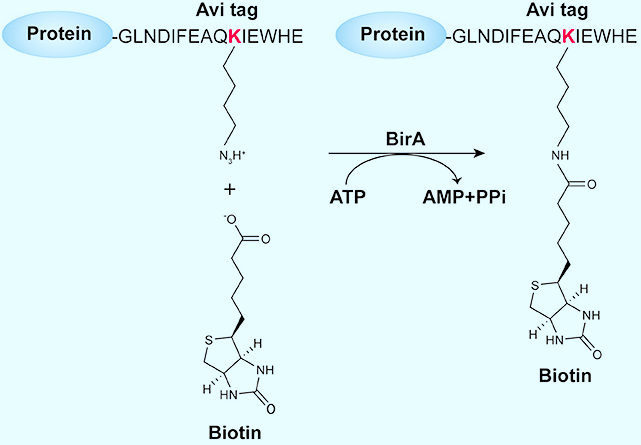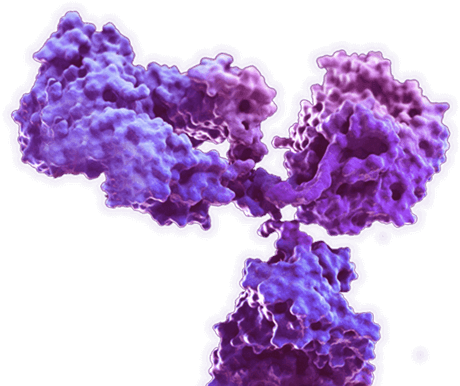Overview
Avi-tag is a short peptide tag composed of 15 amino acid residues. Biotin ligase can be linked with biotin on the lysine residue to achieve the biotinylation protein in vivo or in vitro. It is an ideal tool for protein interaction studies because of the high specificity and stability obtained from the combination of biotin and streptavidin. Creative Biolabs possesses enriched experience in model organism antibody engineering and manufacture, scientists at Creative Biolabs are devoted to developing fab abzyme cutting service, fluorescently labeled antibody service and model organism antibody products with high controllability and operability.
Applications and Advantages
The Avi-Tag system can simply and efficiently purify proteins or immobilize adsorbed proteins. Due to the advantage of small molecular of avi-tag, it can basically fix all proteins to any medium surface, such as micro-titer plate, chromatography media, biosensor chip, Nitrocellulose membrane (PV) and PVDF membrane. It can be widely used in medical and industrial fields and has been increasingly applied in the fields as follows: biosensor (Biosensor), diagnosis (Diagnostic), scintillation approach analysis (Proximity assay), drug screening (Drug Screening). Avi-tag tags have proven to be exceedingly felicitous in the following areas.
| Applications | Advantages |
|---|---|
|
|
 Fig.1 Recombination-protein biotinylated system established in budding yeast.1
Fig.1 Recombination-protein biotinylated system established in budding yeast.1
Workflow of Our Service
Creative Biolabs offers a wide range of biotinylated proteins allowing researchers to choose per need. Each biotinylated protein is held according to the same industry-leading quality standards. Our Custom Protein Development Team can work with you to create an avitag-biotin protein solution to meet your specific research needs.
- Intracellular avitag-biotin labeling technique in the mammalian system
- In vitro avitag-biotin labeling technique
- Customization of recombinant avitag-biotin
- Avitag-biotin protein detection
Features at Creative Biolabs
Avi-tag uses the enzyme (biotin ligase)-catalyzed reaction to label biotin. Compared with chemical methods, avitag-biotin protein presents a series of merits: 1) almost all proteins can be easily and effectively biotinylated in a unique Avi-tag site whether in vitro or in vivo; 2) the reaction conditions are quite mild and the specificity of the tag is extremely high as the biotinylation is achieved through the reaction of enzymes and substrates. Creative Biolabs has a scientific team to fulfill your wide range of demands:
- We are committed to using the strictest quality control to ensure the smallest batch-to-batch variation.
- We have developed a series of experimentally verified biotinylated and exclusive pre-labeled recombinant proteins.
- We use high-quality human-derived proteins as raw materials to achieve the highest biological activity and detection sensitivity.
Reference
- Xue, Huijun et al. "Utilizing Biotinylated Proteins Expressed in Yeast to Visualize DNA-Protein Interactions at the Single-Molecule Level." Frontiers in microbiology vol. 8 2062. 24 Oct. Distributed under Open Access license CC BY 4.0, without modification.
Feature Available Service

